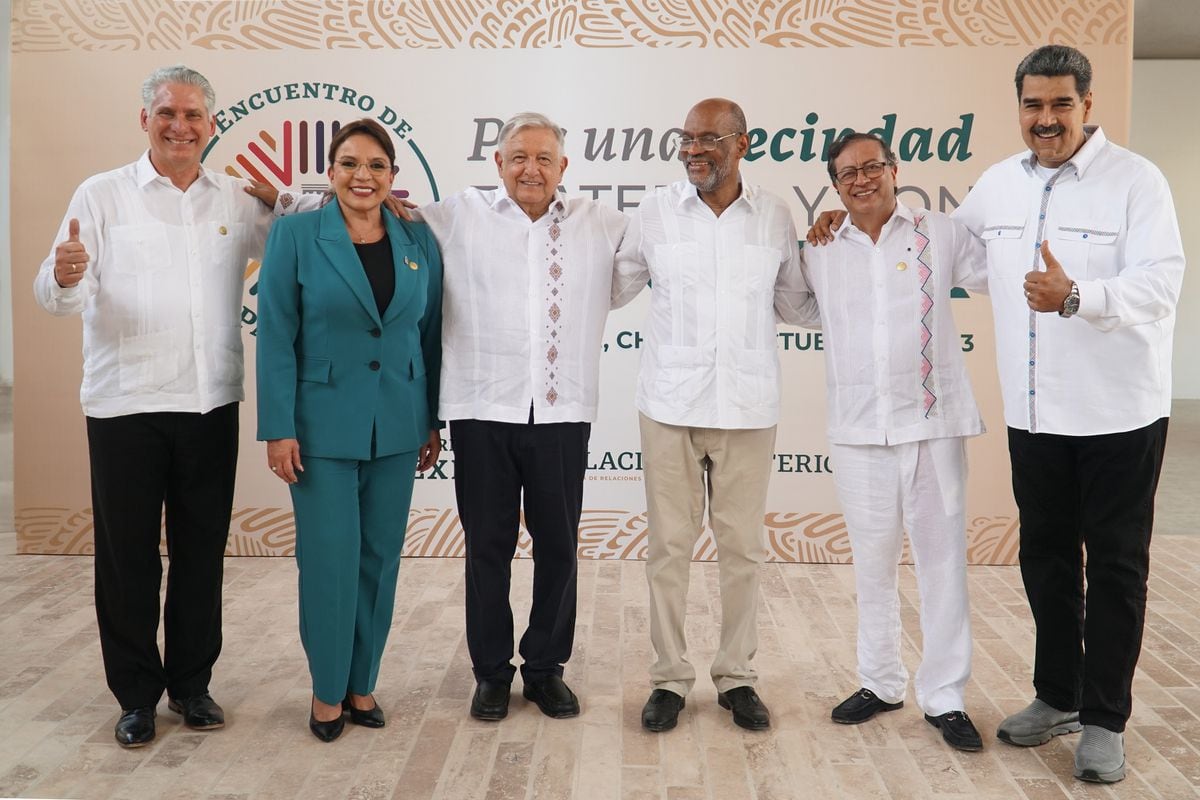In recent years, there has been an overflow of migratory potential and a mass exodus from Central America and the Caribbean to the United States. In 2022, that flow growth reached a record two and a half million migrants at the border with Mexico. Most of these migrants, unlike in previous years, did not come from the Northern Triangle of Central America (Guatemala, Honduras and El Salvador) and Haiti but from Venezuela, Cuba and Nicaragua.
Migratory pressure led Joe Biden's administration to agree with Mexico on a new immigration plan earlier this year, which would extend the granting of legal income to the United States. According to that plan, so far in 2023, nearly a quarter of a million citizens of those countries have received temporary humanitarian stay. The largest number of permits have been granted to Haitians, then to Venezuelans, and finally to Cubans and Nicaraguans.
The end of Title 42 and the entry into force of the Biden Plan temporarily stemmed the flow of migrants. This summer, however, border patrol apprehensions topped half a million people. As expected, the measures taken by the United States and Mexico are not sufficient to produce a significant decline. It is strange that this conclusion was not shared at the high-level meeting between the United States and Mexico at the National Palace in early October.
Migratory potential continues to grow in any of the countries in the region, including Mexico, although the forms of retention, containment or refoulement vary. Some are deported from the United States or Mexico, others, the fewer, manage to settle in Mexican or Central American territory, and an even smaller number abandon the idea of emigrating for more advantageous conditions in their countries of origin.
In 2022, the government of Andrés Manuel López Obrador announced, during a trip by the president to Guatemala, El Salvador, Honduras, Belize and Cuba, that social programs implemented in Mexico, such as Sembrando Vida and Jóvenes Construyendo el Futuro, would be extended to those countries to promote regional development and discourage emigration. A year and a half later, it is not known how well these programmes have been implemented in these countries or whether they have contributed to halting or slowing the flow of migration.
After five years of bilateral management, in its repeated meetings with the United States, of a crisis that is essentially transnational, the Mexican government convened a migration summit in Palenque. Of the ten leaders invited, only five attended, the presidents of Venezuela, Colombia, Cuba, Honduras and the prime minister of Haiti. The absence of the presidents of Ecuador, Guatemala, Costa Rica, Panama and El Salvador was revealing of the limits of the call.
The overweight of the positions of the Bolivarian Alliance in the forum did not, apparently, achieve the inclusion of Daniel Ortega, but it did achieve a rhetoric that focuses on the migration crisis as a situation caused by the trade embargo and the economic sanctions of the United States against Cuba and Venezuela. Of course, the limitations that Washington unilaterally imposes on trade with these countries affect their internal conditions, but the fall in the social indicators of these countries and, specifically, the increase in poverty and inequality are the consequence of misguided economic policies.
The narrative of sanctions as a cause of emigration overlaps with contrary experiences, from the point of view of development assistance from the United States, such as those of Haiti and the countries of the Northern Triangle of Central America. The governments of these countries, unlike the Bolivarian ones, have no difficulty in acknowledging that poverty, inequality and insecurity have increased in their nations. Rather, the focus of these governments' discourse is on collaboration for development, not on confronting U.S. hegemony.
López Obrador's Mexico, which maintains a priority relationship with Washington, would seem to be the ideal space to contribute to a rapprochement of these antithetical ways of approaching migration. However, as in their trip through the region in 2022, the government of Amlo and Morena seem to blend in, momentarily, with the anti-imperialist discourse of the members of the Bolivarian bloc. After that fleeting rejoinder, Mexican diplomacy returns to its deep and constant inter-American logic.
How can we understand this mimicry? On the one hand, it is an easy, inexpensive way to please governments such as Cuba and Venezuela, always in need of external legitimacy and with the capacity to exert pressure on the bases of the regional left. On the other hand, this ideological diplomacy allows Mexico to preserve the migration issue within its permanent negotiation of advantageous bilateral ties with the United States, without major commitments to regional containment.
The Palenque Summit seemed, at times, like a Tower of Babel, where the leaders spoke different languages, while the declarations and protocols of the foreign ministries tried to finalize more substantial agreements. Some of this linguistic confusion was unavoidable, since the causes of emigration are nuanced in different countries from country to country. Neither the structural deficits in Haiti nor the lack of freedoms in Venezuela, Cuba and Nicaragua are exempt from this causality. But in all cases, poverty is at the root of the phenomenon and insecurity lurks every stretch of the journey to the United States.
Once again, ideology conspires against diplomacy, to the point of making unimaginable a migratory forum where all the rulers of Central America and the Caribbean converge. The lack of democratic legitimacy of some and the isolationism of others, added to the profound deterioration of regional integration forums, contribute to the creation of these fictions of ideological consensus, which contribute very little to the channeling of legal and safe emigration.
Subscribe hereto the EL PAÍS Mexico newsletter and receive all the key information on current affairs in this country

